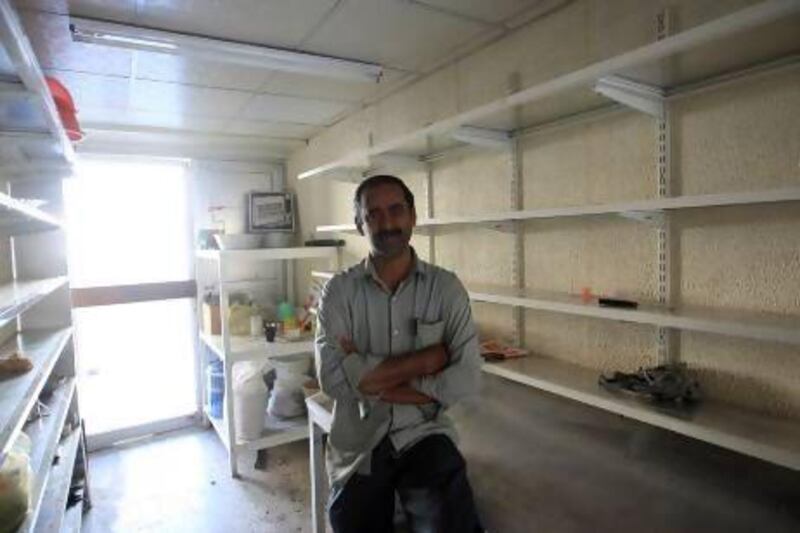When Amer Ali's father first set up his grocery business in Abu Dhabi more than 30 years ago, his shop was made of plywood and surrounded by sand.
There were hardly any buildings nearby and the spot, in the now-busy and built-up Muroor Road area, looked very different to how it appears today.
Mr Ali, now 39, was a child when his father left India to start a new life, and he remembers hearing some tales.
"My father came to the UAE in a ship, which took seven to 10 days. At that time there were no buildings [here] - only in the downtown area. I remember my dad telling me that they made the shop with plywood," he said.
"There was a strong storm one day. The entire area was full of sand at the time and there were no buildings, so when the wind blew the entire shop blew over and it was a major loss for us. I was in India and about 11 but I heard about it. When my dad came for a vacation he used to tell me."
About 16 years ago Mr Ali left his home in Kerala and arrived in Abu Dhabi, where he was able to see his father's business with his own eyes.
"It would never occur to me that I would come here from India, but my father brought me. After seeing him in the grocery business I had to follow him," he said.
The following year Mr Ali took over from his father, Kuni Mohideen, who later moved back to India before passing away six years ago at the age of 78.
When Mr Ali took over the business, which supported his family in India, it was housed in a rented building, but there was still little development surrounding it.
"There were only three buildings in the area at the time. It looked very different to now. There was a pond here and some crows and birds. There was a cement factory and in the next area there was a school," he said.
In time-honoured fashion, children used to make their way to the shop to buy chocolate, drinks and crisps.
His regular customers came from a handful of companies located in the area.
Mr Ali, who now has a wife and two children - who remain in India - remembers when there was no water supply and a tanker used to supply the buildings.
"Before, there used to be only sand in the area and people used to walk or some people used to drive with great difficulty in the sand.
"If they walked their entire clothes would be covered in sand. It has changed so much and become much more beautiful," he said.
Today the grocery, which is named after him, is located just a few buildings away from where it was when he first took over. But it is no longer filled with the colourful supplies it once was.
As Mr Ali recalled its history he leaned against some shelves that now stand eerily empty. The rows of colourful tins and packets of food have gone and there are no customers with whom to pass the time of day.
He said he could not afford the Dh250,000 it would cost to upgrade the premises in line with the new regulations, and he now faces a very different future.
He is considering returning to India to set up a small business but would prefer to stay in the UAE and run a smoking or gift shop in a different location, if he can find a good sponsor.
He has to throw away food worth about Dh26,000, other items and equipment from the shop. He is also owed nearly Dh20,000 by customers who pay on a monthly basis, he said, and expects to recover only about Dh8,000. Many people do not know that he has closed and will have no way of reaching him to pay.
"I think my father would have gone back to India if he was here. You cannot help it if there are changes in the law - you have to follow it," he said, adding that he does not feel sad.
"By having a feeling, what would I gain? I will lose my health if I think about it too much."






